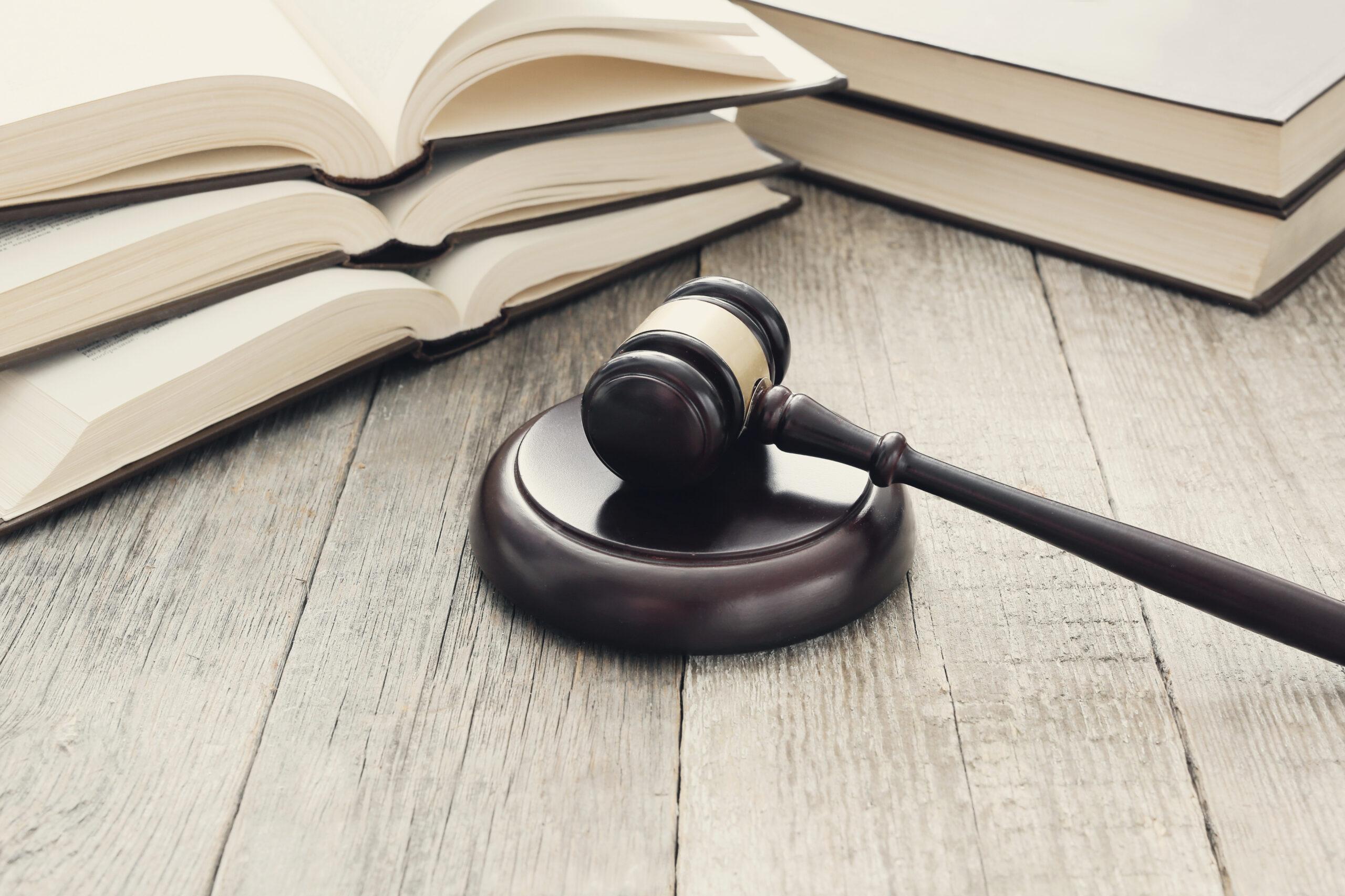If you’ve ever felt like a company wronged you, and you suspect others are too, you may be wondering what you can do about it. A class action lawsuit is a way for people with similar claims to join forces and hold a company accountable without each person having to file their own separate lawsuit.
The big perks? You share the costs and have a better chance at a bigger settlement. This guide will explain when a class action lawsuit is appropriate, how to start one and what to expect. Keep reading to have a better understanding!
What Is a Class Action Lawsuit?

A class action allows a group of people, called class members, to sue a defendant as a collective group. It’s different from an individual lawsuit, where one person sues for their own damages.
In a class action, everyone with similar claims is represented together, which can be more efficient, especially when many people are affected by the same issue.
Why choose a class action over an individual lawsuit? For one, it’s often easier and more cost-effective for the plaintiffs. Instead of each person having to hire a lawyer and deal with the complexity of the legal system on their own, a group can pool resources.
A lead plaintiff, also known as a class representative, is selected to represent everyone else in court. This ensures that the legal process moves forward smoothly and fairly, without each plaintiff needing to be involved in every detail.
Class actions are often seen in cases involving securities class actions (like when shareholders are misled by a company), defective products, consumer fraud, or even workplace discrimination.
What Is Required for a Class Action Lawsuit?
Starting class action cases isn’t as simple as filing a lawsuit. There are several legal requirements that must be met before the court will allow the case to proceed as a class action. Let’s break those down.
Common Issue
For a case to be considered a class action, there must be a common issue. A central problem that affects all the plaintiffs in a similar way. Whether it’s a faulty product, misleading advertising, or fraudulent business practices, the key is that all the class members have experienced the same kind of harm.
Numerosity
Enough people must be involved to justify treating the case as a class action. Typically, the court will want to see that there are so many potential plaintiffs that filing individual lawsuits would be impractical.
There’s no exact number required, but if you’re talking about dozens or even hundreds of people, a class action is likely the right rout.
Adequate Representation
The lead plaintiff or class representative must be able to adequately represent the interests of the entire class. This means their experience must be typical of the group, and they have the resources and commitment to see the case through.
Class Certification
Litigation can’t begin until the named plaintiffs file the class action lawsuit and then they ask that the court certify the proposed class. This step involves the court reviewing the case and determining whether it meets the requirements to proceed as a class action.
This process is governed by specific federal rules of civil procedure in federal court or similar rules in state court, depending on where the case is filed.
How To Start a Class Action Lawsuit
Here’s the important part: how do you actually start a class action case? Let’s walk through the steps so you know exactly what to expect. Always ensure that your case meets the various express and implied requirements.
Identify the Legal Claim
Start by identifying the issue at hand. Have you been wronged by a company’s product or practices? Are others experiencing the same issue? Your legal claim must be strong and involve multiple people with similar grievances.
Find an Experienced Attorney
You must consult a class action attorney with experience with these cases. The attorney will assess whether the claim qualifies for a class action and whether there are enough plaintiffs to proceed. Hiring someone familiar with class action law is crucial, as it’s a specialized practice area.
File the Lawsuit
Once the attorney agrees to take the case, they will file the lawsuit for the entire class. Depending on the nature of the case and the applicable laws, the court will decide whether it will be heard in state or federal court.
Class Certification
The court will then review the lawsuit and decide whether to certify the proposed class. This is a critical step, as the case can only proceed if the class is certified.
Notify Class Members
After certification, potential members must be notified about the lawsuit. This notification allows them to join or opt out of the case. One of the named plaintiffs represents the larger group.
Benefits of a Class Action Lawsuit
Class actions offer several advantages over individual lawsuits. If you’re weighing your options, here’s why a class action might be the right move:
Cost-Efficient for Plaintiffs
In a class action, the costs of litigation are shared among all the class members rather than being borne by one person. This makes it more affordable for individuals, especially when facing large corporations with deep pockets.
Strength in Numbers
When a large group of people files a lawsuit together, it sends a stronger message to the defendant. There’s also more evidence and collective bargaining power, which can lead to better results for everyone involved.
Forces Corporate Accountability
Class actions are a way to hold corporations accountable for their actions. Whether it’s illegal business practices or defective products, a class action can lead to significant settlements that not only compensate victims but also force companies to change their ways.
Potential for Larger Settlements
Because class actions involve a large group of plaintiffs, the potential settlement can be larger than in individual cases. Companies are often more willing to settle when facing a large payout and negative publicity.
Who Can File a Class Action Lawsuit?
To file a class action lawsuit, you must have experienced the same harm as other members of the group. This includes cases like consumer fraud, defective products, or employment issues. All plaintiffs must share a common issue for the case to proceed.
When enough people are affected, multiple plaintiffs are grouped, making individual lawsuits impractical. One or more lead plaintiffs represent the entire group. Common examples of cases include fraud, faulty products, or workplace violations.
How Much Does It Cost To Start A Class Action Lawsuit?
Here’s a breakdown of the common costs and fees involved:
- Contingency Fees: Lawyers typically take 25% to 40% of the settlement or award if the case is successful.
- Court Filing Fees: These range from $350 to $500, depending on the court.
- Litigation Costs: Can range from $10,000 to $100,000+, usually advanced by the law firm.
- Administrative Costs: Notifying class members can cost $5,000 to $100,000, depending on the class size.
- Expert Witness Fees: Experts charge $200 to $1,000 per hour, depending on their expertise.
- Mediation Costs: Mediation costs between $1,000 to $10,000 if it is required.
The law firm covers most of these costs and deducts from the settlement if the case is won. Plaintiffs typically don’t pay upfront.
Class Action Settlements and What To Expect
Many class actions settle before going to trial. Here’s what to expect from a settlement:
- Settlement vs. Trial outcomes: Most class action lawsuits work by settling before trial, offering a quicker resolution and avoiding the uncertainty of a court verdict. However, if no settlement is reached, the case may proceed to trial, which can take years and result in less favorable terms.
- Distribution of settlement money: Settlement funds are distributed among plaintiffs based on the level of harm each person experienced. This often involves a claims process where individuals provide documentation to receive compensation.
- Legal fees and how they are covered: Lawyers typically work on contingency, meaning they are paid only if the case is successful. Legal fees are deducted from the settlement, with the court overseeing the distribution.
- The appeals process: If the case goes to trial and the verdict is appealed, it can significantly delay compensation. Depending on the court’s decision, the appeals process can also change or reverse the original outcome.
Legal Considerations and Risks
Discuss the risks and legal challenges involved, including the possibility of long timelines, reduced individual control over the case, and possible rejection of class certification.
While class actions offer many benefits, there are also some risks to consider. For one, class actions can take years to resolve, especially if there are appeals. Plaintiffs also give up some control over the case since the class representative and attorneys make decisions on behalf of the group. Also, the court may reject class certification, meaning the case may not proceed as a class action.
How Long Does a Class Action Lawsuit Take?
Class action lawsuits typically take anywhere from two to three years, depending on the case’s complexity. Factors like class certification, the number of plaintiffs, and whether the case goes to trial can all affect the timeline. Be prepared for a long process, especially if the case involves appeals.
How To Choose the Right Lawyer for a Class Action Lawsuit
Choosing a lawyer requires finding an attorney with relevant experience in similar cases. Their expertise in handling the complexities of class action law is critical for a successful case.
Managing large groups of plaintiffs requires a specific skill set that an experienced attorney will possess. This expertise is crucial whether your case involves consumer fraud, product defects, or employment issues.
You should also ask about their fee structure. Most attorneys work on a contingency basis, meaning they only get paid if you win. Clarify how fees will be deducted from any settlement to avoid surprises and ensure you’re fully informed about the financial aspects of the case.
Recent Class Action Lawsuits in Consumer Rights
Two notable recent class action lawsuits in the U.S. focus on consumer rights and data privacy concerns. The Lincare Holdings Inc. data breach litigation arose after a significant data breach in 2021, where sensitive consumer information was compromised.
The lawsuit accuses Lincare of failing to implement adequate security measures to protect personal data, leading to unauthorized access and potential identity theft for many affected individuals. A proposed settlement of $7.25 million is currently under review, underscoring the critical nature of data protection in the healthcare industry.
Another significant case is against Avast Ltd., which was brought to light by the Federal Trade Commission (FTC) due to allegations that the company sold personal information to over 100 third parties, despite assurances of consumer data protection.
This lawsuit emphasizes the increasing scrutiny on tech companies regarding their data handling practices and the need for transparency. A consent decree from January 2024 includes a settlement of $16.5 million, aiming to reinforce consumer consent and uphold privacy standards in the digital landscape
Class Action Lawsuits FAQs
What Is the Minimum Number of Plaintiffs for a Class Action?
There’s no set minimum number of plaintiffs required for a class action, but generally, a group of 40 or more is considered sufficient. The court looks for a group large enough that filing individual lawsuits would be impractical. This is known as the numerosity requirement in class actions.
Can I Join an Existing Class Action?
Yes, if you meet the objective criteria to be part of the proposed class, you can join an existing class action lawsuit. Typically, once a class action is certified, potential plaintiffs are notified and given the option to participate. If you choose to join, you will share in any settlement or judgment that may result.
What Happens if The Class Action Lawsuit Fails?
If a class action lawsuit fails, the plaintiffs usually do not receive any compensation, and the case is dismissed. However, depending on the circumstances, class members may have the opportunity to file individual lawsuits if they opt out of the class action before it is concluded. It’s important to consult with a lawyer to understand your rights if it fails.
How Much Money Can I Expect From a Class Action Settlement?
The amount of money you can expect from a class action settlement varies widely but can typically range from a few dollars to thousands, depending on the case’s specifics. For smaller legal claims, such as minor consumer product issues, settlements may result in individual payouts of $10 to $100.
In larger cases involving significant injuries, fraud, or corporate misconduct, the compensation per person could reach several thousand dollars. Factors like the number of plaintiffs and whether the case is heard in the appropriate court also influence the final payout amount.
Conclusion
Starting a class action lawsuit can seem overwhelming, but it’s a powerful way to seek justice when many people are affected by the same issue. By working with an experienced attorney and being patient, you can navigate the process and increase your chances of a successful outcome.
Just remember, class actions take time, but the payoff — both in terms of compensation and holding companies accountable — can be well worth it. Talk to a lawyer to seek guidance for your specific case.
Disclaimer: The information provided in this article is for informational purposes only and does not constitute legal advice. Readers should not act or refrain from acting based on this information without seeking appropriate legal counsel from a licensed attorney. The content is not intended to create, and receipt or viewing of it does not establish an attorney-client relationship.


